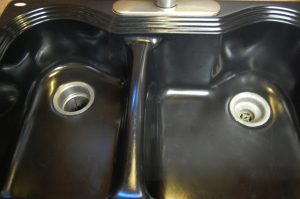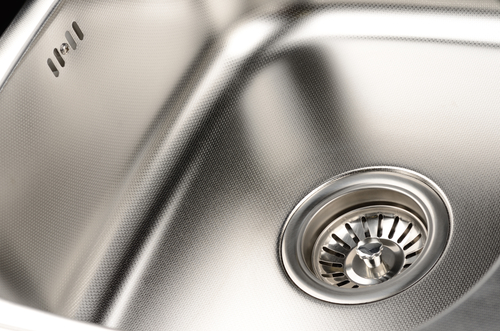Introduction
Over time, sinks can lose their luster due to everyday wear and tear. Stains, scratches, and mineral deposits can accumulate, leaving your sink looking dull and aged. However, there’s no need to invest in a new sink just yet. With the right techniques and a bit of elbow grease, you can breathe new life into your sink and make it look brand new again. In this comprehensive guide, we’ll explore various methods to revitalize your sink and restore its original shine.

Cleaning and Maintenance
Regular cleaning is crucial to maintaining the appearance of your sink. Depending on the material of your sink, different cleaning methods may be required. Here are some general tips:
1. Daily Cleaning
Make it a habit to wipe down your sink after each use to prevent the accumulation of dirt and grime. Use a mild dish soap and a soft sponge or cloth to clean the surface. Avoid abrasive materials, as they can scratch the finish.
2. Removing Stains
For stubborn stains, create a paste using baking soda and water. Apply the paste to the stained areas and let it sit for 15-20 minutes before scrubbing with a soft brush. This method is effective for various types of stains, including coffee, tea, and rust.
Removing Scratches
Scratches can be unsightly, but they don’t necessarily mean you need a new sink. Depending on the severity of the scratches, you can try the following techniques:
1. Sanding
For minor scratches on stainless steel sinks, use a fine-grit sandpaper to gently buff out the scratches. Be sure to follow the grain of the sink to avoid creating more visible marks. After sanding, clean the sink thoroughly and apply a stainless steel polish to restore the shine.
2. Porcelain Repair Kits
If your sink is made of porcelain and has scratches or small chips, consider using a porcelain repair kit. These kits typically include a filler compound that can be applied to the damaged areas, followed by sanding and polishing to blend the repair with the surrounding surface.

Dealing with Mineral Deposits
Mineral deposits, commonly caused by hard water, can leave unsightly stains on your sink. Here’s how to tackle them:
1. Vinegar Soak
Fill your sink with a solution of equal parts water and white vinegar. Let it sit for an hour, allowing the vinegar to break down the mineral deposits. After soaking, scrub the sink with a soft brush or sponge, and then rinse thoroughly.
2. Lemon and Salt
Cut a lemon in half and dip it in table salt. Scrub the affected areas with the lemon, using the salt as an abrasive agent. The natural acidity of the lemon combined with the abrasive salt will help remove mineral deposits and leave your sink looking refreshed.
Polishing and Finishing Touches
Once you’ve addressed stains, scratches, and mineral deposits, it’s time to give your sink a final polish for that extra shine:
1. Metal Polish for Stainless Steel
Invest in a quality metal polish specifically designed for stainless steel sinks. Apply a small amount of polish to a soft cloth and buff the entire sink in circular motions. This will not only restore shine but also create a protective barrier against future stains and scratches.
2. Porcelain Wax
For porcelain sinks, consider applying a porcelain wax or sealer to protect the surface and enhance its sheen. Follow the manufacturer’s instructions for application and drying times to achieve the best results.
Conclusion
With a combination of regular cleaning, targeted stain removal, and careful maintenance, you can make your sink look as good as new. By following the tips and techniques outlined in this guide, you’ll not only save money on a new sink but also prolong the life and beauty of your current one. Remember, a little effort can go a long way in revitalizing your sink and bringing back its original sparkle.
Take pride in your kitchen space by keeping your sink in top-notch condition, and enjoy the satisfaction of a bright and rejuvenated centerpiece in your culinary haven.

